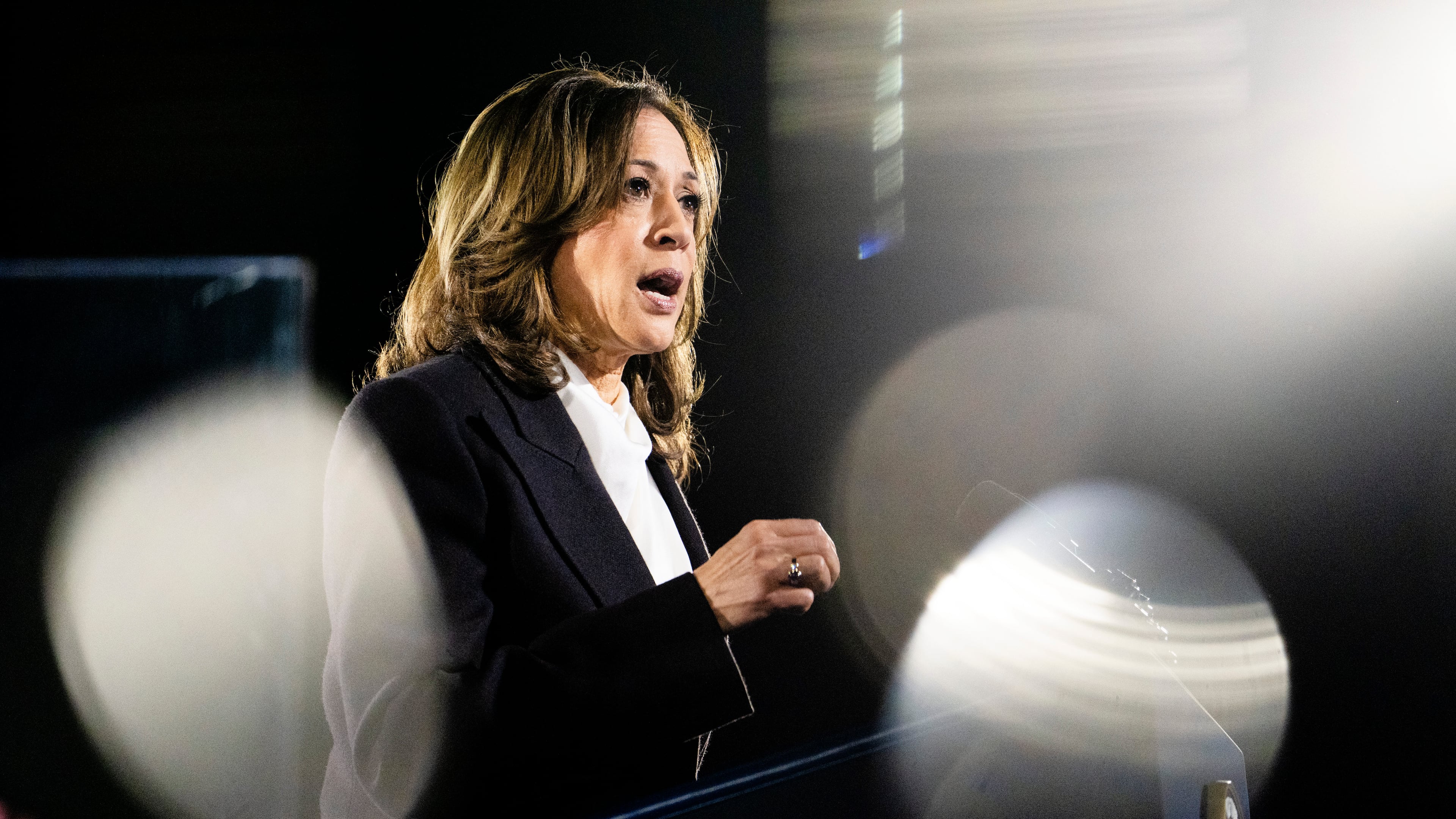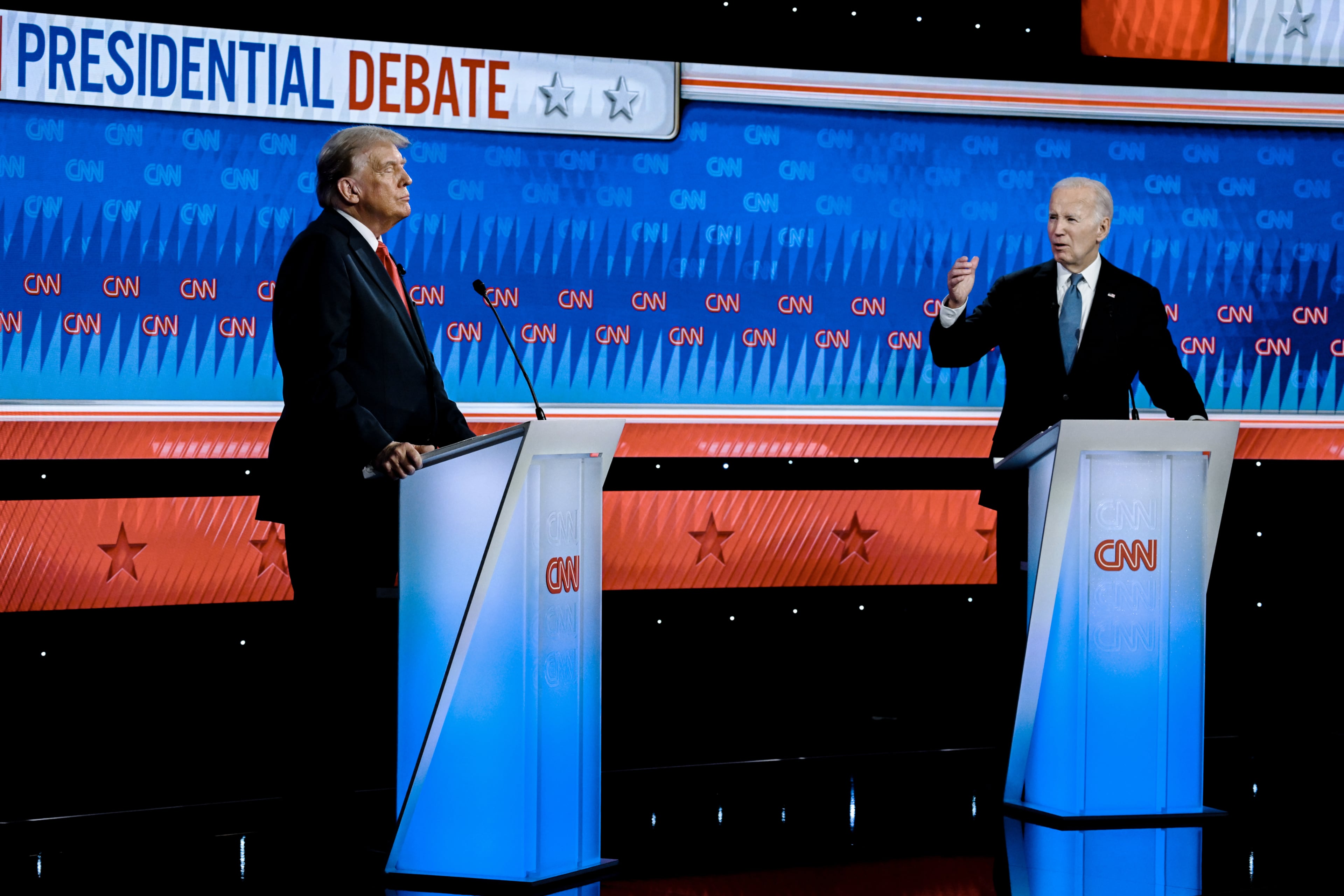Kamala Harris’ ‘107 Days’ is more than a memoir — it’s a warning for America

The night of President Joe Biden’s disastrous presidential debate in June 2024 against Donald Trump, I wrote in the AJC that Kamala Harris was the winner.
Watching from my home, I knew Biden would either be forced out or step down, and she was the most likely heir. I watched her that evening deftly shut down CNN’s Anderson Cooper when he pressed her on Biden’s performance. She was clear. She was sharp. She looked like a woman ready to lead.
Fast-forward: Biden stumbled along for weeks before finally bowing out, and Harris was handed the nomination with just 107 days to make her case to America. We know how the story ended. Donald Trump — a twice-impeached president who egged on the Jan. 6 insurrection at the U.S. Capitol and was later convicted of 34 felonies — rambled on the campaign trail about sharks and Hannibal Lecter. He offered no coherent policy plans and still swept all seven swing states. Harris, one of the most qualified women ever to seek the presidency, lost.
Her new memoir, “107 Days,” explains why. It’s not just a personal defense. It is a political autopsy and, more important, a mirror held up to America.

Harris was more qualified than anyone
Harris is often compared to former Democratic presidential nominee Hillary Rodham Clinton.
Yes, Clinton was supremely qualified in 2016. But Harris was uniquely positioned in 2024 in a way no woman in American history has ever been. She was not merely running for the job — she had done the job.
The first female vice president. The first Black and South Asian female vice president. The second Black woman elected to the Senate. The first woman and woman of color attorney general of California. As vice president, she was dispatched across the globe to meet with world leaders, to handle crises, to serve as a true second-in-command.
Governors like Gavin Newsom of California, Gretchen Whitmer of Michigan and Josh Shapiro of Pennsylvania had resumes that played well in theory.
But Harris had the on-the-job training that none of them could match. She was a heartbeat away from the presidency.
And yet, it wasn’t enough.
Biden’s vice president was sidelined for three years
In “107 Days,” Harris admits what many of us saw from the outside: She was sidelined.
For three years, Biden’s inner circle hid her, undermined her and left her unprotected. Former first lady Jill Biden even questioned the loyalty of Harris’ husband, Doug Emhoff, prompting his furious outburst that they had been sidelined for four years only to be asked for loyalty at the end.
For women in power, and particularly women of color, this story is all too familiar.
In my first book, “Black Woman Redefined,” I chronicled how accomplished women are often asked to serve, to be loyal, to keep quiet — while being denied full embrace and protection.
Harris lived that in the vice presidency.

Biden’s recklessness and ego cast a shadow on the 2024 campaign
Harris does not mince words about Biden’s decision to run again in 2024: She calls it “recklessness.”
At 81, Biden grew tired. He stumbled physically and verbally.
Yet even after his disastrous debate, he refused to admit how badly it had gone.
Worse, his ego consumed him.
Harris recounts Biden calling her frantically to complain about reports she was “badmouthing” him — on the eve of her own debate prep. “I just couldn’t understand why he would call me, right now, and make it all about himself,” she writes.
This is the environment in which she was expected to succeed: boxed in by loyalty, overshadowed by dysfunction, saddled with the failures of the president she served.

VP choices and ‘The View’ appearance were highly scrutinized
The memoir drives home how little time Harris had.
A campaign takes years to build — she had months. Her running-mate deliberations revealed both her pragmatism and her trap.
Former Secretary of Transportation Pete Buttigieg was an “ideal partner,” she thought, but a Black woman and a married gay man was “too much of a risk.”
She had nagging doubts about Shapiro’s ambition, and Minnesota Gov. Tim Walz, whom she chose, underwhelmed in debate.
Her “View” appearance, where she couldn’t name how she would differ from Biden, became what she calls an “unforced error” — like pulling the pin on a hand grenade.
It showed her impossible bind: She couldn’t separate from Biden without disloyalty but couldn’t win clinging to him, either.
Three key observations from Harris’ memoir
The Trump contrast: Meanwhile, Trump offered no real policy agenda. His rallies were spectacles of grievance and absurdity. He talked about sharks. He invoked Hannibal Lecter. He cast himself as victim and savior. And it worked. He won because his base was energized, and because Harris never got the chance to consolidate her own.
Her blind spot — culture wars: Harris was shrewd about the risks of a Harris-Buttigieg ticket. She correctly assessed America wasn’t ready for that much change at once. But she missed the larger picture: The culture wars had already overtaken the political battlefield. Issues of transgender rights, boys in girls’ sports, DEI and same-sex marriage were not fringe — they were central to Trump’s message. These flashpoints, sharpened under Obama, helped birth Trump 1.0 in 2016 and carried Trump 2.0 to victory in 2024. Harris underestimated just how much those battles defined the electorate she needed to win.
Why the book matters: “107 Days” is Harris’ attempt to tell her story before others write it for her. It exposes Biden’s recklessness, the Democratic Party’s hesitation and the double standards of race and gender that weighed her down. It explains why she lost, but it also makes the case for what she could have done with more time. Some critics see it as a down payment on a future run in 2028. For readers — especially women and women of color — the book resonates because it is not just about politics. It is about being dismissed, second-guessed and undermined, even at the highest levels.
History is too often “his story.” Women rarely get to tell it. Harris has insisted she would not let bitter old men of politics and academia define her 107 days. She was there. She was the candidate. She lived it. And she tells it now with the clarity of a firsthand witness.
Her Secret Service code name was “Pioneer.” That says it all. Harris may not have won the presidency in 2024, but she won something else: the right to write her own story — and to remind America of the stories we too often refuse to hear.
Sophia A. Nelson is an award-winning nonfiction author of four books, including “E Pluribus One: Reclaiming our Founders’ Vision for a United America.” She is an award-winning journalist for her work in Essence magazine. She is a renowned global women’s conference speaker and corporate DEI trainer. She is a regular contributor to the AJC.

